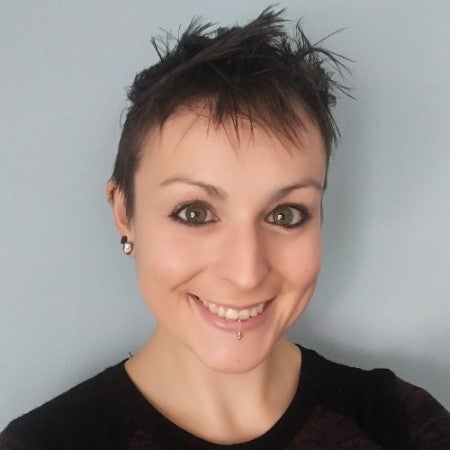
Every time we wash synthetic clothes—fleece, nylon, rayon, spandex, polyester—tiny bits of fibre slough off. These fibres are so small that they pass through any existing filters in washing machines, ending up in lakes and rivers, and even being found in bottled water, beer and other beverages. The microfibres also collect chemicals and toxins on them, which affect both fish and humans alike. And these microfibres make up 94% of all microplastics, but no one was doing anything about them.
Lauren decided to do something. Last fall, she was granted lab space at Velocity Science to test possible materials and is working to catch the fibres at both ends of the process—to prevent release from washing machines and into foods and beverages. Together with her partner at what they called PolyGone Technologies, they developed a specialized multi-layered material system to capture these fibres, and are currently refining prototypes. They are also in conversations with stakeholders and consumers about using these prototypes. They recently got funding from JumpStart in the Accelerator Centre to help them prepare for a pilot project. PolyGone Technologies also secured a spot in the 8th cohort of the Accelerator Centre JumpStart Program and was awarded $30,000!
This summer, Lauren was awarded a GreenHouse Big Ideas Challenge Fellowship. She says,
“It’s been really useful to receive training in all areas of running a business. It’s also been really nice to be around others whose business at the core is about doing good.”
Lauren says,
“Being able to communicate well is vital to what we’re doing – or we could develop this awesome solution but no one will use it.”
To that end, this fall, Lauren begins a PhD at Waterloo in behaviour change and social marketing, focused on decision making around water, studies that will inform and help amplify the work she’s doing with PolyGone Technologies.
- by Susan Fish